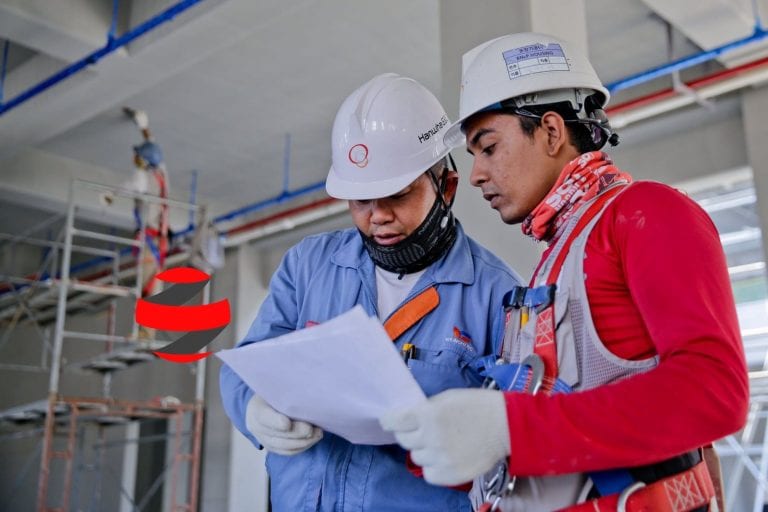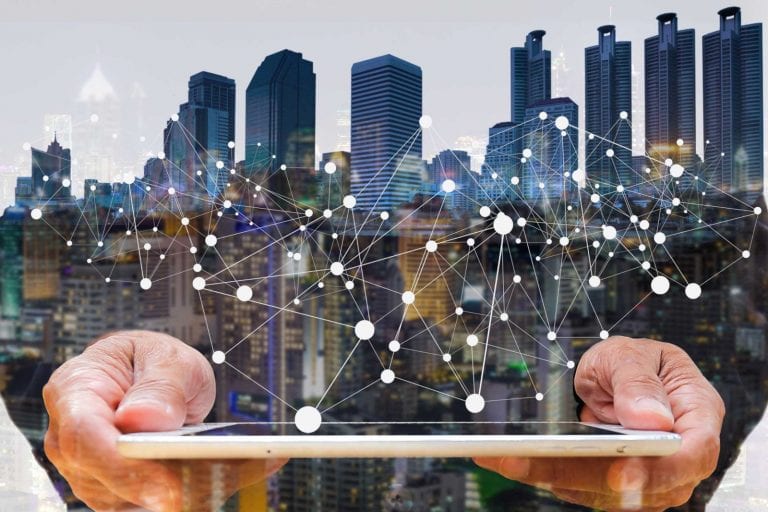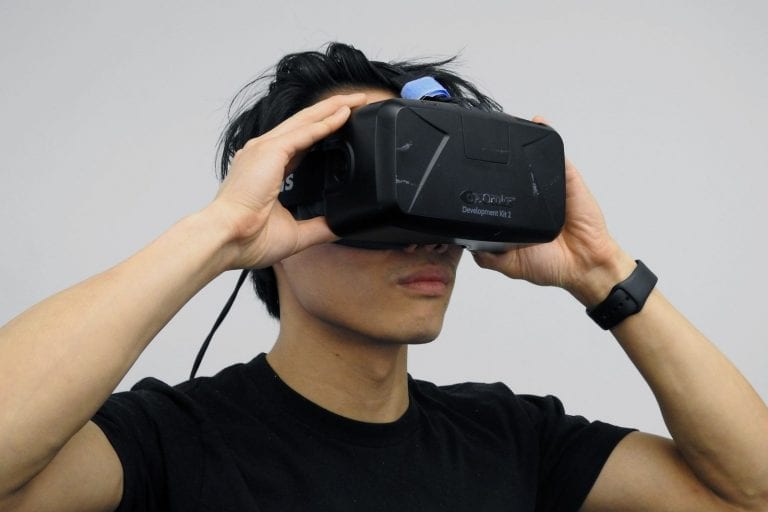The construction and property management industries are growing in popularity and market value with each passing year, as the ever-increasing demand for more commercial and residential properties is attracting affluent investors and enticing governments to contribute to urbanization around the world. This is especially true for emerging economies that are experiencing a population boom or are experiencing mass population shifts from rural to urban environments.
To meet the rising demands and stay competitive in their fields, companies are rapidly integrating technological solutions into their construction and management processes, including advanced robotics, collaborative technological aids, as well as smart software that automates and expedites managerial roles. Let’s delve deeper into the leading tech solutions that are taking the construction and property management industries forward.
Putting Emphasis on Team Collaboration

Instead of the traditional approach to construction that entails the creation of a design, the gathering of bids from potential contractors, and the construction process itself, the industry is quickly adopting a more integrative and collaborative approach. We are seeing a rise in public-private partnerships that enable a more collaborative design-build approach, all for the sake of the consumers’ and the investors’ best interests.
However, it’s not just the need to make construction more accessible to the public that’s driving this trend. The recent shortage of skilled workers in the construction industry and the rapid integration of advanced robotics has prompted companies to start searching for third-party support. To achieve better on-site collaboration, be sure to integrate team management apps, document management systems, digital whiteboards, and virtual assistants.
Leveraging IoT for Improved Insight and Efficiency

The Internet of Things, robotics and applications have a significant role to play in the construction and property management industries. Some of the benefits include warehouse management and optimization to creating projections for the trends in the industry and accurately predicting certain shifts such as disruptions in the workforce. This is why companies and property managers are increasingly leveraging IoT and artificial intelligence to gain deep industry insights and stay one step ahead of the competition.
Internet of Things applications can help your business streamline all of its processes, reduce operating costs, gather relevant industry insights, collate large amounts of data efficiently and effectively, and improve workflow across the board. Integrating these solutions is an excellent way to gain a competitive advantage and leverage knowledge to create actionable steps that will take your business forward.
Focusing on Smart Software to Enhance Property Management
With new residential and commercial properties, there is an increased demand for property managers, as well as a need to optimize and improve the science of property management as a whole. This is why comprehensive property management software has become so popular with investors, managers, and landlords in recent years, as it allows the owner to optimize and automate every crucial process.
These processes include invoicing and all accounting tasks, trust management, as well as all administrative work including tenant management and property-wide communication. One of the main benefits of software integration into the property management scheme is its could-based structure, meaning that it is easily accessible from every platform. This allows investors and landlords to manage their properties efficiently and effectively on the go.
Related: 7 Best Property Management Tools for 2019
Augmented and Virtual Technologies Have Their Uses as Well

In an attempt to reduce extraneous expenses and streamline the collaborative process between numerous parties on a construction project, companies are increasingly integrating augmented and virtual reality solutions into their operations. The reason for this is simple: AR and VR solutions allow professionals from numerous branches to collaborate on construction projects in real-time from anywhere in the world, and most importantly, these technologies allow them to collaborate in a digital space where they can not only envision the design but craft it as well.
This allows for unprecedented levels of efficiency during the design phase of the project and provides an overview of the design that will allow team members to identify potential faults and errors, and rectify them before the project moves forward. While AR and VR technologies do require a substantial initial investment, the long-term ROI will be well worth it.
Streamline Administrative Functions with Virtual Receptionists

And finally, it’s important to note that administrative functions are increasingly being outsourced to the non-human workforce. In other words, telepresence technologies and automated AI solutions are quickly replacing some job positions in the industry, such as assistants, receptionists, accounting, and more.
The hardware and software solutions aim to streamline all administrative tasks. A good example would be an AI receptionist greeting your clients and customers at the front desk. This will allow you to manage incoming traffic efficiently, and even enable seamless collaboration between numerous offices in the country and internationally. The same goes for property managers as well as construction leaders and teams.
Construction and property management industries are on the rise around the world. Technological advancements play a key role in scaling and managing this growth effectively, as they allow companies and individuals to automate and streamline workflow to minimize costs and maximize their investments. Integrate these solutions yourself to take your business forward in an ever-expanding industry.
This article has been contributed by Tracey Clayton.